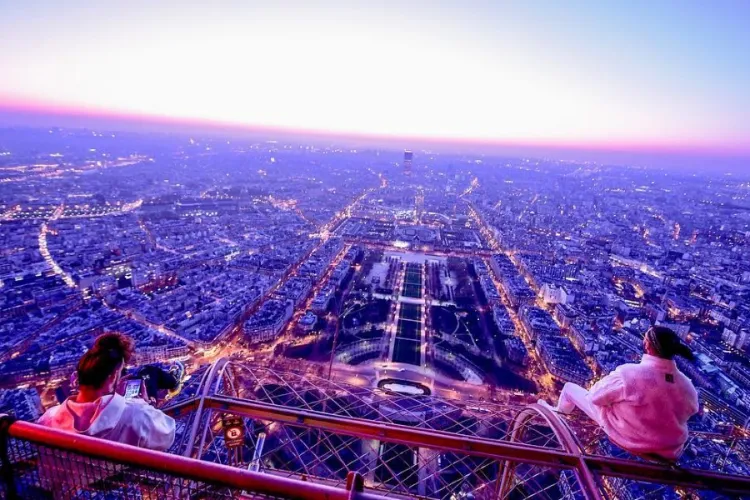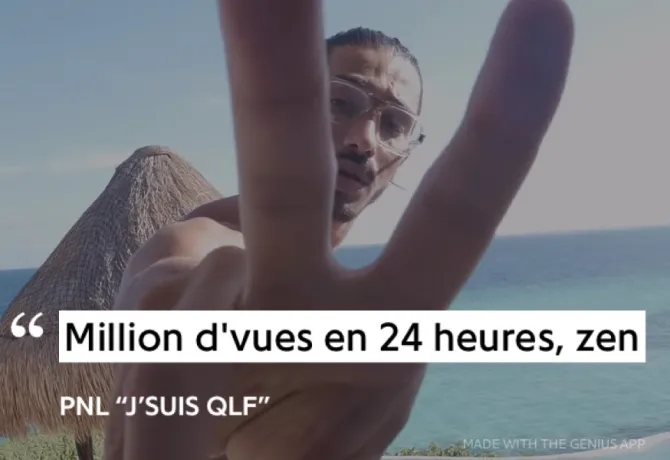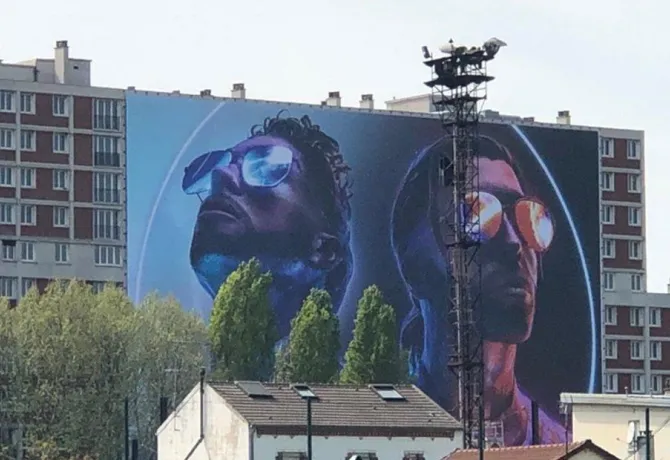Chang, when PNL reminds us of their past
Divided between regret and good times, PNL takes us back to their childhood with a touch of melancholy.
By Angelo Simoes

Back on the Earth
It's 8pm, it's March 22nd 2019, the two brothers from Tarterêts arrive like a comet on the French rap scene and slap the French rap landscape with the release of the Au DD clip shot on the Eiffel Tower. At the end of the clip, which will have cost more than 400 000 euros, the group gives us an appointment two weeks later, on March 5th 2019 for a new album more than 3 years after the last one. The sound will break notable records as the most streamed music on platforms, 12 million views in 48 hours on the clip and trending in several countries around the world, this return will have a tidal wave effect. The hype is at its peak, the Deux Frères era is launched.
The Au DD clip that was shot on the Eiffel Tower!
The release of Deux Frères
It's D-day, the album is out and from the first listen we know we're listening to something special and exceptional that will make a mark in French rap. They push the productions of their album to an even higher level by collaborating with Joa(TrackBastardz), Yann Dakta & Rednose and of course BBP, all supervised by the work that borders on perfection in musical engineering of Nikola Feve aka Nk.F. The album is already a critical and commercial success, it accumulates more than 113,000 sales in 1 week, including 62,787 physical sales, at a time when streaming is the biggest source of listening.

More personal than ever
Let's stop on the third track of the album called Chang, a melancholic and nostalgic track, a well known recipe of the band. In this track, the two brothers go back to their past and in particular the second verse of NOS which is the highlight of the track. With this verse we travel with NOS to his childhood where he grew up as if we were there with a very pictorial writing.
Une chance qu'ils aient pas détruit mon bâtiment P't-être qu'un jour, j'pourrais l'montrer à mes enfants Où avec Tarik, papa, Sarah j'ai di-gran Là où j'étais qu'un fils de dit-ban Là où j'avais la confiance même avec les grands Laisse-moi toucher c'que t'as touché Laisse-moi aimer c'que t'as aimé Et dans l'œilleton d'la porte j'aimerais passer Pour juste une fois ressentir le passé Revenir là où tout a commencé Car on était aussi heureux, je le sais

In the following verse we are carried away by the spleen and the voice full of emotions of NOS who leaves us the free interpretation of the person to whom he addresses. He wishes he could change some of the things that made his family suffer due to the hard life in the suburbs but at the same time remembers that he was also happy at that time when he had nothing in contrast to what he can have now with the fame.
J'aimerais sonner à la porte et voir ton visage Sans les rides sur ton visage Te prévenir de ce qui te fera du mal Pour ne pas te voir souffrir toute ma vie
Although the author expresses the fact that he misses his past, he does not forget the harm caused by his life on the streets and expresses the wish to change his past to protect his family, especially his father.
Et le présent m'chuchote : "Poto tu vas souffrir" Donc mes enfants, j'leur mentirai que j'suis heureux Qu'ils soient jamais comme moi, jamais dans les ténèbres Sur cette chaise, dans ce hall, j'me sens si bien Ça me rappelle quand j'avais des rêves en chien
In this passage we understand that his father's life has strongly affected him as a child and still does. That's why he thinks it's better for him and his future children to lie to them so as not to repeat a similar pattern. The image of the chair shows that he is still suffering from his old life and does not see any glimmer of hope.
Et je r'viendrai quelques fois regarder la porte, sans toquer, sans sonner, jusqu'à ma mort Et je r'viendrai quelques fois regarder la porte, sans toquer, sans sonner, jusqu'à ma mort
In this passage, which closes this sound, we can see that he feels forever linked to his former life, especially with death being addressed.
